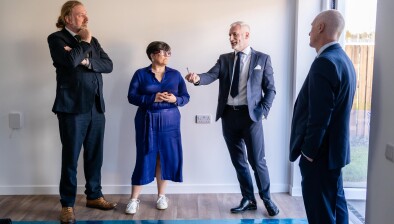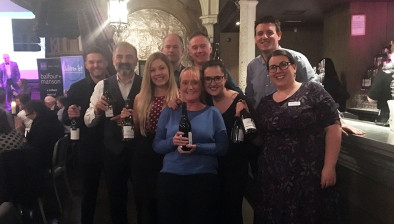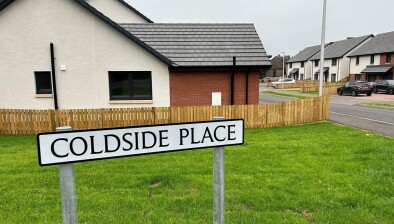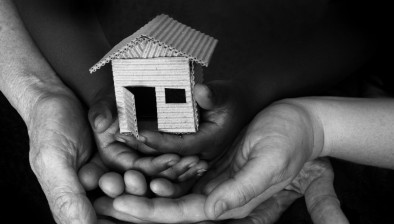Trio of local authorities agree health and social care budgets
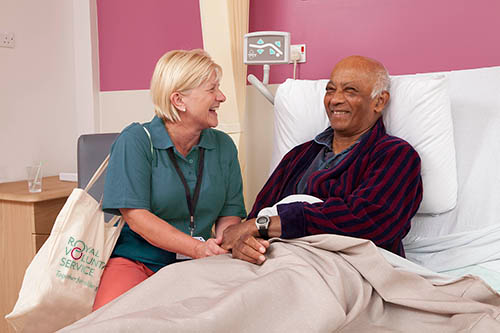
Budgets for health and social care have been approved in East Renfrewshire, Dundee and Inverclyde.
East Renfrewshire Health and Social Care Partnership (HSCP)’s budget for 2024/2025 was approved by its Integration Joint Board (IJB) yesterday.
The Partnership is facing a funding gap of £9.8 million and the IJB has now approved plans to bridge this gap. The Board also gave the Partnership permission to continue to develop plans for a further £2.1m in savings which will give some flexibility, allow for any financial changes throughout the year and mean Senior Management can plan for financial challenges in 2025/2026.
Savings agreed include a continued focus on social care package reviews - which began in 2023 in line with the Partnership’s tightened social care criteria to access services , a redesign of several services, including Care at Home and Recovery Services, a reduction in Grant funding to external organisations, a review of HSCP accommodation, a pause in recruitment and voluntary severance/early retirement for Council-employed staff.
The meeting highlighted that one of the biggest challenges for the HSCP is the Prescribing Budget, which is expected to be £3m over budget in 2024/2025. The HSCP pays for every prescription written in East Renfrewshire, and a combination of factors means this cost continues to rise. The Partnership is working to urgently reduce this cost to balance its books while ensuring residents can access the medication they need.
Anne-Marie Monaghan, chair of the East Renfrewshire Integration Joint Board, said: “Today’s meeting was tough, and the Board has approved these savings with a heavy heart. The Partnership is at the stage where savings can only come from the frontline, so regrettably, residents will see changes to health and social care services in East Renfrewshire.
“We understand how upsetting it is for residents and their families to experience changes to social care and support arrangements, especially when they are used to a higher level of formal support. We are working closely with families, the third, and the voluntary sector to mitigate the impact of changes and help residents find other forms of support in our communities.
“We are not where we would want to be, and these have been tough decisions, but we can reassure residents that we are committed to delivering excellent care and to those who need it the most.”
The Dundee Health and Social Care Partnership Integration Joint Board (IJB) agreed its budget for the coming year at its meeting yesterday.
A total of £301.2m will be spent on service delivery in 2024/25, an increase of £7.9m on last year’s figure. The biggest portion of the budget will be spent on community-based health services and adult social care. This figure includes £110.3m from Dundee City Council and £190.9m from NHS Tayside, which is still to be confirmed.
The allocation for the year ahead includes additional funding from the Scottish Government to deliver a £12.00 per hour minimum pay settlement for adult social care workers in commissioned services, in line with the Real Living Wage Foundation rate. More than £10m of savings were made in this year’s budget, in a range of areas including a reduction in care home places, which reflects a shift in policy to more care at home services and subsequent decline in demand for places.
Councillor Ken Lynn, Dundee City Council’s lead spokesperson for health and social care and vice chair of the IJB said: “This budget sets out to protect front line services at this challenging time.
“Despite the difficult financial position, we have been able to do some great things to really make a difference to the people of Dundee. I am particularly proud that we have opened Hope Point, the Community Wellbeing Centre, and it’s great to see the positive difference this is having on people’s lives.
“We have also received money from the Scottish Government to ensure that our external social care provider staff will get an increased hourly wage. From April 1 this year, they will receive a minimum of £12 per hour.”
Inverclyde Integration Joint Board (IJB), the Health and Social Care Partnership (HSCP)’s governing body, approved its two-year budget on Monday.
In February, the HSCP launched a public consultation on its savings proposals, announcing it was facing a funding gap of £5.2m over the next two years.
The Partnership asked staff and residents seven carefully crafted questions to understand what matters most to them.
Following the budget engagement, the Partnership revised its savings options to reflect the responses, and the IJB has now approved these plans.
Councillor Robert Moran, chair of the Inverclyde Integration Joint Board, said: “This is one of the most challenging financial situations the IJB has ever encountered, and it is with the greatest consideration that these difficult decisions have had to be made.
“We appreciate the input from everyone who participated in the budget engagement, as your views helped guide our decision-making. We have eliminated increasing our charges for community alarms, day services, and transport and have focused on protecting frontline health and social care services - this is in line with our statutory duties.
“As we proceed with these savings, we will continue to engage with staff, service users, and our commissioned services. Our priority is to continue providing the best care possible to those who need us the most, which will remain at the heart of everything we do.”
The IJB’s approval of a two-year budget will provide the Partnership with financial stability, the ability to plan for future funding challenges, and the capacity to deliver savings over 24/26.
Approved savings include a review of commissioning arrangements, a redesign of Day Services, a business support review, a review of the HSCP senior staff structure, a redesign of our front doors, a review of long-term vacancies and adult services self-directed supports.





